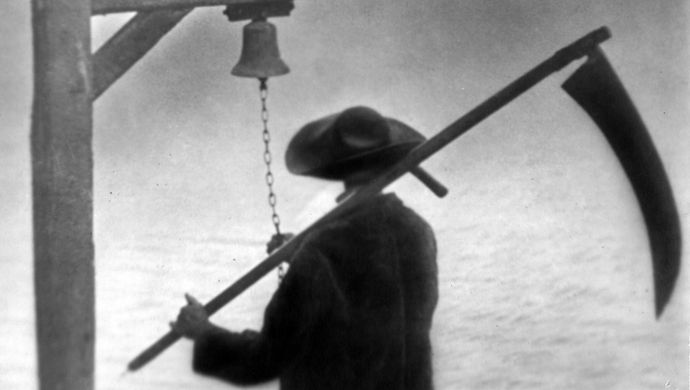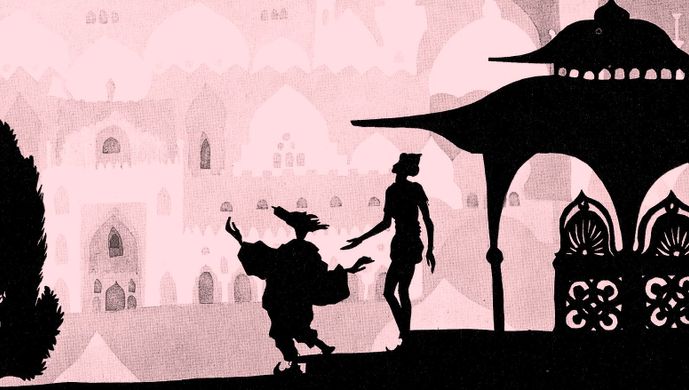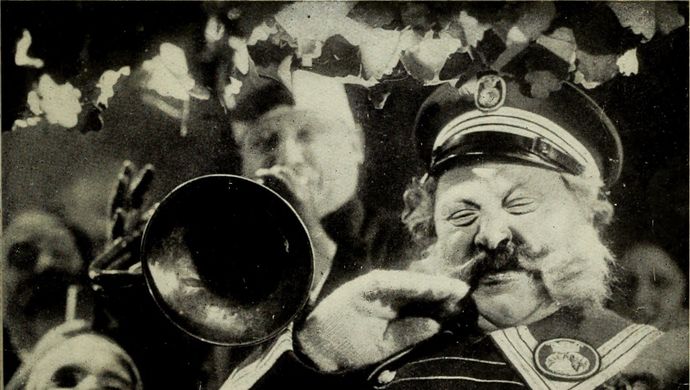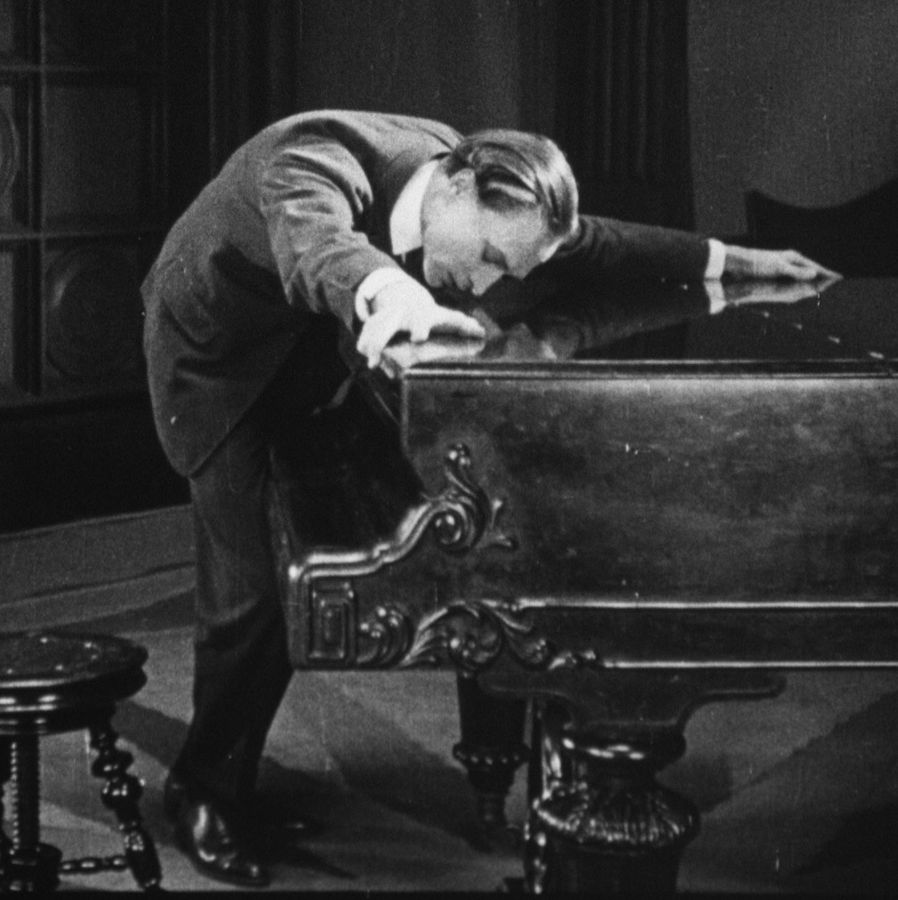
Films to listen to
Film and live music in the Muziekgebouw
2 March 2023
by Sasja Koetsier
One of Muziekgebouw aan ’t IJ’s interdisciplinary programmes is the concert series Film and Live Music, in which renowned soloists and ensembles provide classics from the glory years of the silent film with a new score, which they perform live. The exciting interplay between music and image that this creates also provides the opportunity to experience milestones in the history of cinema the way they were originally intended. For like no other, these films prove that watching movies is about more than just ‘looking at pictures’.
Far from silent
Sound effects, spoken commentary, accompanying music, and even live actors who delivered the characters’ dialogues from behind the screen: even in the era of the ‘silent’ film, a performance was far from silent. Particularly in the 1920s, the period from which the films that the Muziekgebouw, in collaboration with Eye Filmmuseum, has selected for this series originate, the live score had become an indispensable part of film. In this period, magnificent movie palaces arose in the big cities, such as the Tuschinski Theater in Amsterdam. With this, the new medium had become a legitimate and respected part of cultural life. 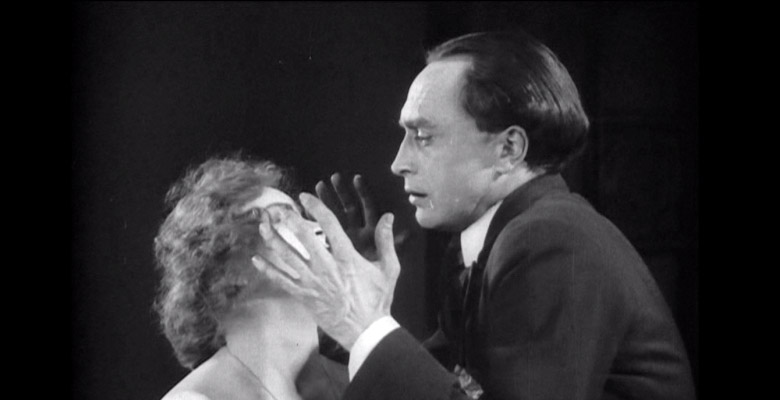
Orlacs Hände (1924)
Creative impulse
The success of cinema as an affordable and accessible form of entertainment sparked a huge creative impulse among creators. This led to an explosion of very diverse film movements, in which there was plenty of experimentation with camera angles, editing and lighting to enchant, captivate and immerse the audience in the film. This was achieved not only through visual means; musical accompaniment also became increasingly important. In modern cinema theatres, it was possible to show longer films without repeated interruptions. This created room for storylines that extended over the full length of the film. To support these, the need for a continuous musical score also arose. 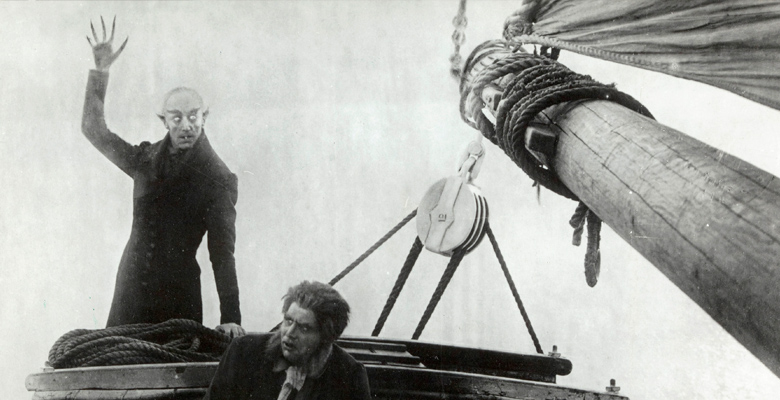
Nosferatu (1922)
New film scores
In smaller theatres, this could be a piano score that was improvised on the spot, with a skilled pianist drawing from well-known classical or popular repertoire. The movie palaces in the big cities employed larger accompanying ensembles. For each film premiere, they rehearsed a new score, which was sometimes composed or arranged by the conductor himself. Using recurring musical themes, these film scores expressed the emotional state of the main characters and supported the narrative; thus, inviting the audience into a deeper immersion within the unfolding story. Studios and distributors sometimes played an active role in this, for instance by providing cue sheets with the film with music suggestions for each film scene. For other productions, contemporary composers were commissioned to write new film scores. The concerts in the Film and Live Music series show the same variety of improvisation scores, compilations of existing material, and original compositions.
The roles reversed
As a matter of fact, in the afternoon or evening programme offered by movie theatres, the role of the cinema orchestra was not limited to accompanying the main film. The musicians also played the overture that kicked off the screening, the accompaniment to the pre-programme, and a musical interlude. The quality of the music and musicians became an essential part of the appeal of a certain film in the last decade of silent film – and remained so for years after the introduction of the sound film, which made its first appearance in 1927. For a segment of the silent film era’s moviegoers, the cinema became their first brush with live classical music. Now the roles seem reversed; at the Muziekgebouw, it is the musicians whose virtuoso, refreshing scores provide an opportunity for (renewed) discovery of classical highlights from an influential film period.





